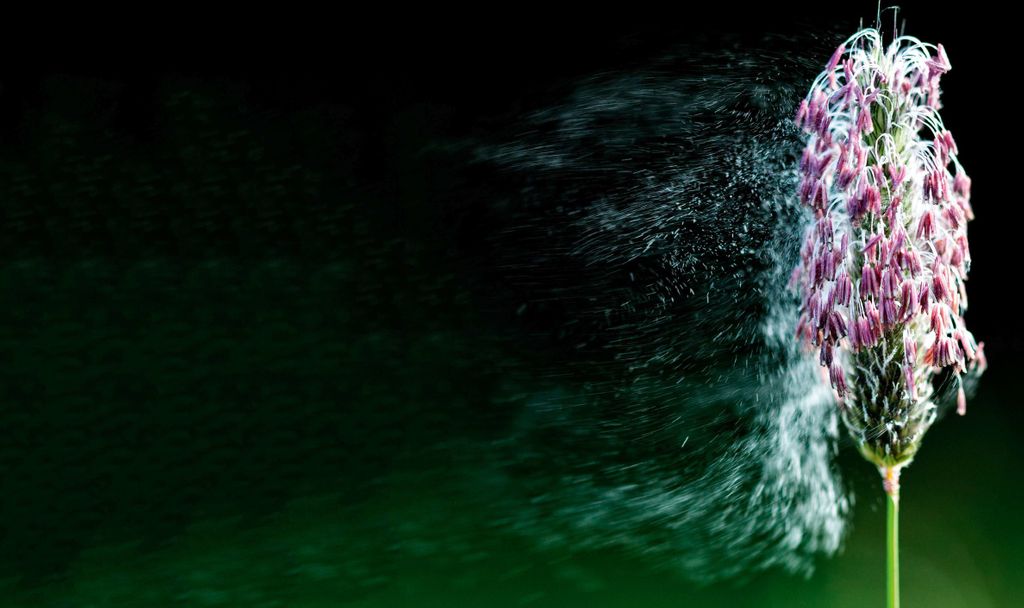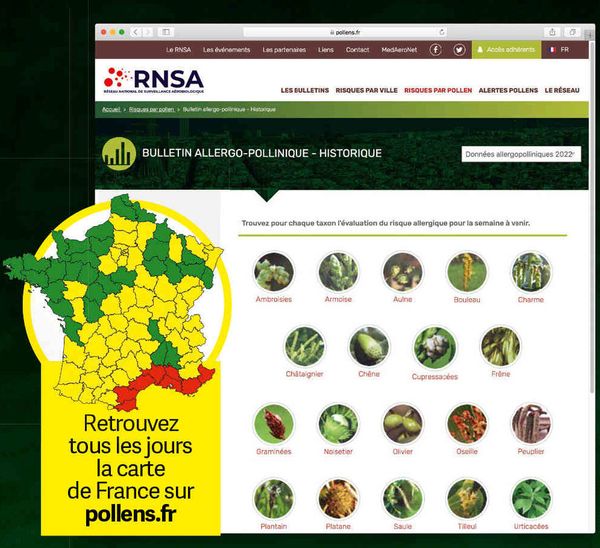The return of spring means the return of pollen …. and allergies!
pollen vigil map
Podcast April 17, 2021 – RTS
Why does pollen always make us suffer more?
In Switzerland, one in five people suffers from hay fever, compared to one in ten at the beginning of the last century, according to a study by the Swiss Institute of Tropical and Public Health. what happened ? And why do symptoms seem to get worse?
https://www.rts.ch/info/sciences-tech/environnement/12123785-podcast-pourquoi-les-pollens-nous-font-toujours-plus-souffrir.html
Podcast March 23, 2020 – France Blue
Allergies to pollen, dust mites, eczema and hives
Spring is back and so are allergies… In this programme, allergy expert Jean-Sebastien Bernier reviews the good things that can help people live better with this allergy and answers listeners’ questions.
https://www.francebleu.fr/emissions/le-dossier-du-jour-de-france-bleu-drome-ardeche/drome-ardeche/le-dossier-du-jour-france-bleu-drome-ardeche- 32
Pollen allergy, or pollen allergy, occurs when a substance (a protein or glycoprotein) is mistakenly recognized as immunologically harmful by a specific individual. In the case of pollen, the reaction will have greater effects outdoors, and more so if there is a wind to disperse the grain. The allergenic capacity of a plant depends on the amount of pollen released, the size of the grain (the smaller it is, the longer it remains in the atmosphere and at great distances), and its ability to release protein molecules responsible for humans. sensitive.
To see if a tree is desirable to grow in an urban area, it is categorized according to its allergenic potency: weak or negligible (acceptable), moderate (only in a few), and vigorous (should be avoided). This last category includes, for example, alder (grain <30 µm), olive and cypress (grain = 25 µm), or even birch (grain <20 µm). To protect yourself during pollen season, several simple measures must be respected. In the open air, it is desirable to avoid excessive exposure (mowing, gardening), to wear protective glasses, a hat and a mask; Do not dry the laundry there and keep the windows closed in the car. Inside, it is important to rinse your hair at night (they capture pollen very effectively); To ventilate for at least 10 minutes per day in the morning before sunrise or in the evening after sunset; To avoid exposure to irritants and/or allergens (tobacco and cleaning products).
>> Read also: Why does pollen make you hypersensitive?

“Subtly charming problem solver. Extreme tv enthusiast. Web scholar. Evil beer expert. Music nerd. Food junkie.”



